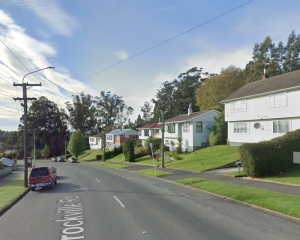
Its most recent campaign, carried out at the weekend for Dunedin Venues Management Ltd (DVML), promotes the March 3 game between Wellington Phoenix and Melbourne Heart. The impression fades as people walk over them, although the council says the ''etching'' does lasting damage.
There were about 80 football match signs throughout the city.
Agency media director Jo-Anne Cook said the temporary signs promoted an event that helped the stadium and Dunedin. The council should support it, she said.
The council called her on Wednesday, saying the signs did ''microscopic'' damage, and should be removed. She does not agree the signs do permanent damage.
In an absence of council policy, the agency had tried hard to work with the council. The agency carried out only socially responsible work, so footpaths would not end up covered in advertisements.
Roading maintenance engineer Peter Standring said he had called Miss Cook on Wednesday following a complaint from a member of the public.
''It's actually etching into the footpath'', which caused damage, he said.
The agency was ''running roughshod'' over council bylaws, and had been warned many times.
Miss Cook's point the signs promoted an event at Dunedin's stadium was irrelevant.
''It's a commercial operation advertising another commercial operation,'' Mr Standring said.
He had advised DVML the work did not have resource consent.
The company received consent for mental health awareness signs it created in 2011, effectively a ''dispensation'' because of the nature of the campaign.
Formal policy being developed would deal specifically with footpath water blasting, but the council had existing control through general bylaws, Mr Standring said.
Because of the damage it caused, water blasting was unlikely to receive consent.
DVML communications manager Jo Scully said DVML had no comment about the council's objection to the signs.












